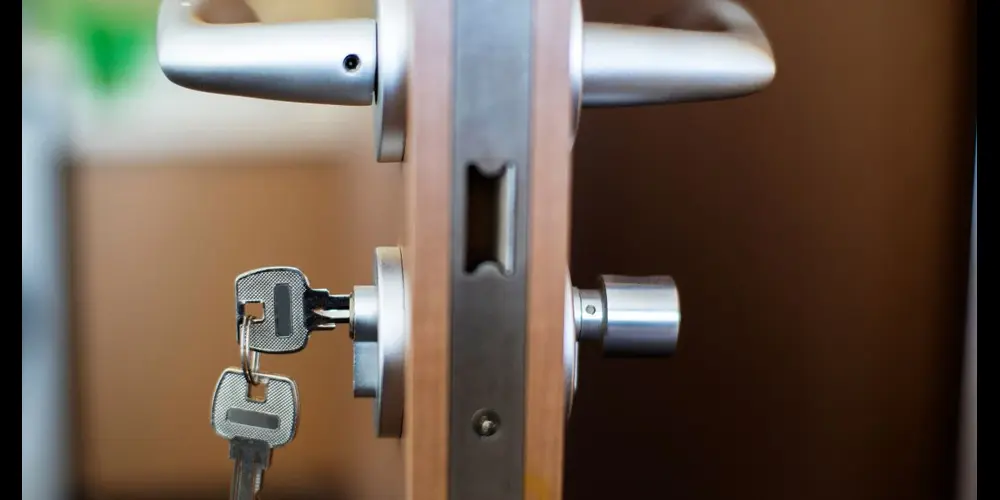The Impact of High-Security Locks on Safety

Introduction
As the world navigates through an era of increased security threats, high-security locks have become instrumental in protecting both personal and commercial properties. This detailed exploration delves into the benefits and integral features of high-security locks, showcasing their crucial role in enhancing safety and deterring criminal activities.
Defining High-Security Locks
High-security locks are designed to offer superior resistance to tampering and forced entry, setting them apart from standard locking mechanisms. These locks incorporate complex features such as drill-resistant cores, anti-pick pins, and reinforced strike plates, which collectively contribute to their robustness. Often certified by industry standards, these locks ensure a higher level of protection for users seeking to fortify their security measures.
Technological Enhancements in High-Security Locks
In the digital age, high-security locks are not just mechanically advanced but also technologically enriched. Features like biometric access, electronic coding, and smart technology integration make these locks not only harder to breach but also more user-friendly. For instance, biometric locks use unique personal identifiers such as fingerprints, which nearly eliminates the risk of unauthorized key duplication.
Residential Applications of High-Security Locks
For homeowners, the installation of high-security locks is a proactive step towards safeguarding their residences. These locks are particularly beneficial in areas prone to break-ins or for homes that house valuable possessions. By upgrading to high-security locks, residents can significantly decrease their vulnerability to break-ins, adding an extra layer of defense that typical locks cannot provide.
Commercial Benefits of High-Security Locks
Businesses, facing even greater security risks, stand to benefit substantially from high-security locks. These establishments often utilize comprehensive locking systems that encompass not only doors but also file cabinets and safes. High-security locks integrated with access control systems can regulate entry to sensitive areas, thus protecting valuable information and assets from theft or espionage.
Impact on Insurance Premiums
One often overlooked advantage of installing high-security locks is the potential reduction in insurance premiums. Many insurance companies recognize the enhanced security these locks provide and may offer discounts to properties equipped with certified high-security systems. This financial benefit can help offset the initial installation costs while contributing to long-term savings.
Maintenance and Durability of High-Security Locks
High-security locks are built to last, crafted from materials that can withstand severe physical attacks and environmental factors. However, maintaining these locks is crucial to ensure they function effectively over time. Regular inspections and maintenance by professional locksmith Bergen, New Jersey can help identify and remedy any potential weaknesses, ensuring the locks continue to offer optimal security.
Choosing the Right High-Security Lock for Your Needs
Selecting the appropriate high-security lock depends on several factors, including the specific security risks of a property, the type of door or asset being secured, and the user’s individual preferences. Consulting with a professional locksmith can provide valuable insights into which features are most suitable for different scenarios, ensuring a customized security setup.
Educational Outreach and Security Awareness
Locksmiths play a vital role not only in installing and maintaining high-security locks but also in educating the public about their benefits. Through workshops, consultations, and online resources, they can help spread awareness about the importance of security and how high-security locks can be a pivotal component of an effective security strategy.
Integration with Smart Home Systems
Modern high-security locks are increasingly being integrated with smart home systems, allowing for seamless control and monitoring of access points via smartphones and other devices. This integration offers not only increased security but also convenience, enabling homeowners to lock and unlock doors remotely, receive alerts of unauthorized attempts, and even manage guest access without physical keys.
Security Customization Options
The flexibility to customize security settings is another advantage of high-security locks. Users can configure lock settings to meet specific security requirements, such as setting times for automatic locking or creating temporary access for visitors. This customization ensures that security measures are not just stringent but also adaptable to the lifestyle and operational needs of the user.
Challenges in Retrofitting High-Security Locks
While the benefits of high-security locks are clear, retrofitting these advanced systems into existing structures can pose challenges. Compatibility with old door frames, integration with existing security systems, and the physical installation process require careful planning and professional handling to avoid compromising the lock’s effectiveness and the door’s integrity.
The Psychological Impact of Enhanced Security
Beyond the physical security benefits, high-security locks also provide a psychological peace of mind. Knowing that one’s property is equipped with top-tier security measures can significantly reduce stress and anxiety associated with potential break-ins. This sense of security is particularly important in regions with higher crime rates or for individuals who have previously experienced burglaries.
Future Trends in Lock Security
Looking ahead, the future of high-security locks involves even greater technological advancements. Innovations such as real-time access tracking, enhanced biometric systems, and even AI-driven security protocols are expected to become standard features. These developments will further enhance the effectiveness of high-security locks and redefine the standards of secure access.
Training and Certification for Locksmiths
As the complexity of high-security locks increases, so does the need for specialized training and certification for locksmiths. Professional locksmiths must stay abreast of technological advancements and undergo continuous training to install, maintain, and repair these sophisticated systems effectively. Certification programs that focus on high-security locks ensure that locksmiths meet the high standards required to handle these advanced security solutions.
Role of High-Security Locks in Overall Security Architecture
High-security locks serve as a critical component in a property’s overall security architecture. They function best when integrated with other security measures such as alarm systems, surveillance cameras, and motion detectors. This layered security approach ensures that if one system fails, others stand in place to provide continued protection, offering a comprehensive defense against potential intrusions.
Conclusion
High-security locks represent a significant advancement in the field of property protection, offering unmatched resistance to common and sophisticated burglary techniques. Their adoption across residential and commercial properties is a testament to their effectiveness in enhancing safety and security. By understanding the features and benefits of these locks, individuals and businesses can make informed decisions that will ensure their assets and loved ones are well-protected in an increasingly insecure world.
Read More From Techbullion And Businewswire.com





